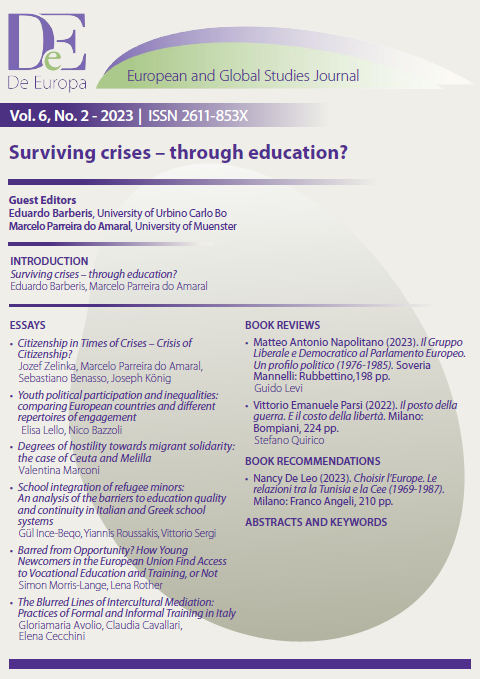Citizenship in Times of Crises – Crisis of Citizenship?
DOI:
https://doi.org/10.13135/2611-853X/7134Abstract
The article discusses recent developments that are impacting the understandings of citizenship in late modern societies. During the past decades, citizenship has been discussed in terms of its contributions to tackling effects of political, social and economic crises. Most prominent are those challenges deriving from processes of Europeanization and globalization, but also, digital technologies are said to impinge new requirements on individuals, thus calling for European, global or digital citizenship. Well beyond simply changing the traditional orientation towards a nation-state, new conceptualizations of citizenship gravitate heavily towards individual dispositions and subjective competencies, while legal-juridical features remain untouched and largely unrelated. This explains the strong emphasis on the role of education in cultivating – global, European, digital – citizenship among individuals. The contribution asks whether and if so, how changed understandings of citizenship may lead to ‘performative citizenship’, where individuals are burdened with the requirement of constantly enacting ‘good’ and ‘worthy’ citizenship. The paper is organized along three sections: First, we revisit the mainstream literature on citizenship and discuss the main elements in historical-systematic manner. Second, based on a thorough literature review we discuss recent developments that call for updated meanings and representations of citizenship, before, third, the paper deliberates on the performative nature on newer conceptions of citizenship by examining recent examples of so-called global universities. The article closes with a discussion of research avenues for the topic, including crucial questions as to the status, role and function of citizenship in times of crises.
Keywords: citizeship, crisis, globalization, representation




 The journal has been approved for inclusion in DOAJ. The DOAJ listing of the journal is available at
The journal has been approved for inclusion in DOAJ. The DOAJ listing of the journal is available at 

